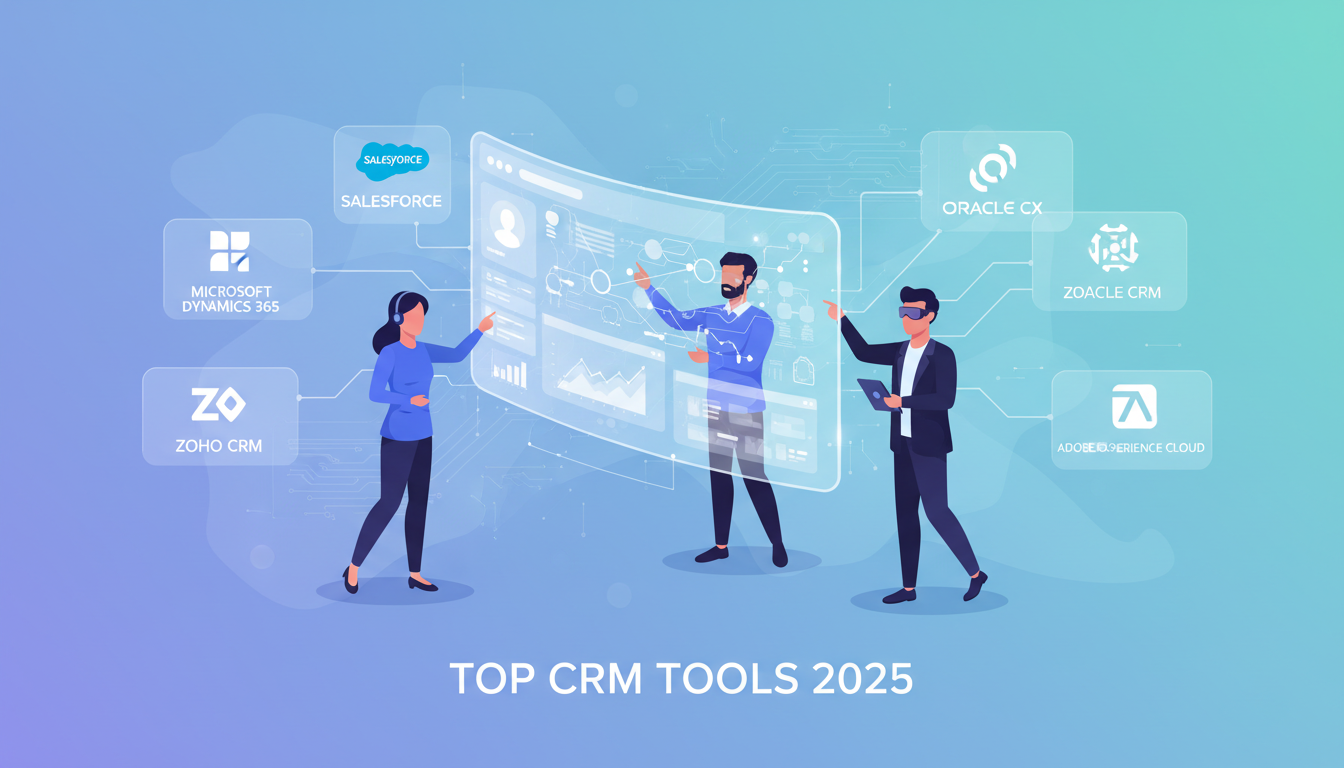Affiliate marketing is one of the latest trends as an effective way for businesses to grow their reach and for individuals to earn money online. Fundamentally, affiliate marketing is a performance-based partnership where businesses collaborate with affiliates - individuals, or companies - to promote their products and/or services. The simplicity of this marketing strategy is its strongest edge. Businesses get to expand their audience and pay only for results, while affiliates enjoy the freedom to monetize their platforms and creativity.
Whether you’re a brand looking to scale or someone eager to turn your online presence into a revenue stream, affiliate marketing is a win-win strategy that’s gaining popularity for all the right reasons.
Definition of Affiliate Marketing
Affiliate marketing is a form of online marketing that involves the process in which affiliates act as partners with businesses to promote their products or services. The affiliates find a product they enjoy then promote that product through blogs, social media, or websites and earn a commission from each sale they make. The commission-based system ensures that affiliates are paid in accordance with the sales made through them thus, making it a cost-effective strategy for businesses.
How Affiliate Marketing Works

Affiliate marketing is a pretty straightforward and easy process, making it an ideal strategy for businesses from various sectors.
-
Sign-Up
The process starts with affiliates joining an affişiate program offered by a certain business they would like to collaborate with and enjoy their services or products. The affiliate program provides affiliates with links and codes that can be traced back to them by businesses, ensuring that the sales made through them are being recorded.
-
Promotion
The second and maybe the most important part of any affiliate process is the promotion. Affiliates promote the business’s products or services using their preferred channels like blogs, websites, or social media platforms.
-
Tracking
In the tracking part, the businesses are able to track their affiliates' activities like when a user clicks on a link that they provided. Tracking can be done via features like cookies or unique identifiers.
-
Action
If a user completes a predefined action like making a purchase, signing up, or downloading an app through an affiliate link or code, the affiliate earns a commission.
-
Payment
As the last step, businesses pay their affiliates following the pre-established commission structure. This payment can be based on matters like sales, leads, or other actions.
Benefits of Affiliate Marketing and Key Players

The main components of the affiliate marketing process are the merchants, affiliates, and consumers. Each player has an important role in the process that contributes to the overall success of affiliate marketing.
The affiliate marketing landscape is able to develop through the collaboration between these players. This interconnected dynamic creates a sustainable and mutually beneficial marketing model, driving growth and innovation in the digital economy.
Merchants are the businesses -or individuals- that offer the products and services that start the affiliate marketing process. Their programs initiate the operation to reach wider audiences through partnership. The performance-based model provided by merchants also minimizes risks for them, as they only pay affiliates for measurable actions like sales or leads, ensuring their marketing investments directly contribute to growth.
Affiliates are the link between merchants and consumers. Affiliates use their platforms to connect with possible consumers and use creativity in creating strategic content like product reviews, tutorials, and recommendations. If done correctly these contents enable affiliates to build trust with their audience and monetize their platforms.
The final player in the process is the consumers, engaging with the affiliate content. Consumers benefit from the affiliate marketing process by accessing relevant content, and recommendations to purchase products and services. By completing actions like making a purchase or signing up for a service, consumers contribute to the cycle, rewarding affiliates and helping merchants expand their customer base.
By combining these elements, affiliate marketing creates a system that allows growth, trust, and profitability for all parties involved.
Types of Affiliate Marketing Models

Affiliate marketing is not one size fits all, it offers several models that can be tailored to different goals and strategies. Each of these models has its unique advantages, and choosing the right one depends on the business’s objectives and the affiliate’s expertise.
Pay-Per-Click (PPC) Model
In pay-per-click or PPC, model affiliates earn a commission for each time a user clicks on the affiliate link, regardless if the user completes a purchase or not. The PPC model’s main objective is to generate traffic and it is often used in projects where the main goal of businesses is to gain visibility and awareness.
Pay-Per-Sale (PPS) Model
In the pay-per-sale model, the affiliate only gets a commission when a sale is completed. Affiliates get a percentage or pre-established set amount from the sales made from their links or codes, making it a rather performance-driven model where the end rate depends on converting leads into paying customers.
Pay-Per-Lead (PPL) Model
The PPL model compensates affiliates for generating leads, such as getting users to sign up for a newsletter, fill out a form, or register for a service. This approach is mostly used by businesses that aim to grow their databases or build customer relationships.
Hybrid Models
Elements of multiple affiliate marketing models are combined in hybrid models. For example, a campaign might pay affiliates a small amount per click and an additional commission for completed sales or leads. The hybrid model’s flexibility allows businesses to align payments with their specific goals.
Steps to Start Affiliate Marketing for Affiliates

As an affiliate, getting started might seem intimidating. However, crafting the right approach can help you turn the process into a profitable and accessible way to earn income through online channels. By following a clear set of steps, you can navigate the process from choosing a niche to tracking your performance.
Choosing a Niche
The foundation to build successful affiliate marketing is selecting the right niche that resonates with both you and your audience. The more passionate and knowledgeable you are about a niche, the easier it will be to create content that is both authentic and helpful. Your audience will be able to sense if a topic or a specific product is not something you can particularly resonate with. In addition to your interest do not forget to conduct market research to identify trends, competition, and potential profitability before committing to a niche.
Joining Affiliate Programs
After choosing your niche, the next step is joining an affiliate program that is relevant to you and your goals. It is crucial to find an affiliate program with quality products or services that is also compatible with your area of expertise and your audience’s interests. In addition, while choosing an affiliate program look for the ones that offer competitive rates and reliable tracking systems.
Creating and Promoting Content
The main tool used for promotion in affiliate marketing is the content. Focus on developing high-quality content that is tailored to your audience’s interests. This can include things like blog posts, product reviews, video tutorials, and social media posts. Incorporate affiliate links and codes into your content in a way that doesn’t feel like all you do is try to sell something to your audiences, try to make it natural. Your main focus should be building trust with your audience by recommending products or services you genuinely believe in.
Tracking Performance and Earnings
To improve your affiliate marketing experience make sure to regularly assess your progress using tools and analytics platforms. Keep track of metrics like click-through rates, conversions and overall earnings. Also analyze which content types and strategies give you the best results and refine your approach to affiliate marketing.
Popular Affiliate Marketing Platforms

Platforms for affiliate marketing provide affiliates with access to a variety of products and services they can promote thus helping them connect with businesses and earn commissions. Affiliate marketing programs offer a variety of tools, resources, and structured conditions for affiliates. By selecting the right platform, affiliates can align their marketing efforts with products and services that resonate with their audience.
Amazon Associates
One of the largest and most well-known affiliate programs in the world is Amazon Associates. This program allows affiliates to promote millions of products across various categories offered by Amazon. With tools for creating various affiliate links and tracking performance, the Amazon platform offers a user-friendly interface for affiliates. The ease of use and the trust associated with Amazon make it a popular choice for both beginner and experienced affiliates.
ShareASale
ShareASale is an affiliate marketing network that offers a wide range of products and services from thousands of merchants. It includes various niches like fashion, technology, finance, and health, providing affiliates with several opportunities. ShareASale also offers reporting tools, reliable tracking features, and payment options which makes it a go-to platform for affiliates looking for reliable business relationships.
ClickBank
ClickBank is a popular affiliate platform specializing in digital products such as e-books, online courses, and software. The platform is best known for its high commission rates, even reaching up to 75%, making it a highly attractive option for affiliates in the digital space.
Shopify
As a prominent e-commerce platform, Shopify also has an affiliate program that allows affiliates to promote its services to entrepreneurs and businesses looking to build online stores. Shopify affiliates earn commissions by referring new customers to the platform. The program is especially popular among affiliates in the business, e-commerce, and entrepreneurship niches. Shopify offers excellent resources for affiliates, including a dedicated affiliate portal, creative assets, and performance-tracking tools.
Tips for Success in Affiliate Marketing
Even though affiliate marketing offers vast opportunities, success requires more than only joining programs and sharing links. To succeed, affiliates need to focus on building trust, providing value, and using strategic approaches.
Focus on High-Quality Content
Creating high-quality, informative, and engaging content is important in order to build a trusting relationship with your audience. Content needs to provide real value to viewers and solve problems. High-quality content not only helps you stand out in the competitive market but also encourages your audience to use your affiliate links and codes. Your main objective with your content should be to educate, entertain and inform your audience, not just push sales.
Build an Engaged Audience
An engaged audience is more likely to trust your recommendations and click on your affiliate links. Focus heavily on building and nurturing your relationships with your audience. Consistently create content that provides value and try to respond to their comments and questions in order to assist interactions on your platform. Your engagement with your audience will help build royalty which will eventually translate into higher conversion rates and more success in your affiliate marketing endeavours.
Avoid Common Pitfalls
There are some common mistakes made by many newcomers to affiliate marketing. To become a successful affiliate, it is important to be aware of these mistakes and try your best to avoid them. One pitfall to avoid is promoting products you don’t genuinely believe in or aren’t relevant to your audience which can harm your reputation and cause you great harm in the long run. Another one is overloading your content with too many affiliate links, which can make it feel spammy. Focus on quality over quantity and make sure your affiliate links are seamlessly integrated into your content without being in your audience's faces too much. Affiliate marketing success often takes time and consistent effort, so be patient.
Challenges in Affiliate Marketing

Even though with the right approach, affiliate marketing can be rewarding, it is not without its challenges. In order to achieve success affiliates need to navigate through various obstacles. While these challenges can be daunting, affiliates who take a proactive and adaptive approach can overcome them and build a successful and sustainable affiliate marketing business.
High Competition in Popular Niches
There are some niches that are popular within affiliate marketing. Topics like health, technology, and finance tend to have high competition due to the number of affiliates promoting similar products. Especially for beginners, standing out in these highly competitive markets can be challenging. That is why affiliates need to prioritize differentiating themselves by creating unique, high-quality content, targeting specific sub-niches, or adopting innovative promotional strategies to capture audience attention.
Dependence on Merchant Reliability
As it is in its nature, affiliates depend on merchants' reliability to have a smooth and rewarding partnership. Issues like delayed payments, commission structure changes or the programs just shutting down can have a negative impact on the affiliate’s earnings and efforts. To ease these issues, affiliates need to conduct thorough research on merchant programs, read reviews, and try to build partnerships with several businesses to reduce risk and dependence on a single merchant.
Managing Traffic and Conversion Rates
Generating traffic to your affiliate content is only half the battle; converting that traffic into clicks, leads, or sales is the real challenge. Non-optimized landing pages, irrelevant audiences, or weak calls to action can negatively affect conversion rates. This is why affiliates need to invest in understanding their audience, optimizing their content, and using data analytics to refine their strategies and improve conversion rates over time.
FAQs About Affiliate Marketing

Affiliate marketing is a popular and lucrative method of earning money online, but there are many questions that arise when starting out. Here are some of the most frequently asked questions about affiliate marketing:
What is the primary purpose of affiliate marketing?
The primary purpose of affiliate marketing is to promote products or services in exchange for a commission when a specific action (such as a sale, click, or lead) is completed. It’s a performance-based model that allows businesses to extend their marketing reach through affiliates who share the products with their audiences, driving targeted traffic and sales.
How much money can you make with affiliate marketing?
The income potential in affiliate marketing varies widely depending on factors like the niche, the affiliate program, the quality of the content, and the size and engagement of your audience. Some affiliates make only a few dollars a month, while others earn thousands. Success requires time, consistency, and a strategic approach, but with dedication, affiliate marketing can be a lucrative income stream.
Is affiliate marketing suitable for beginners?
Yes, affiliate marketing is suitable for beginners, and many people get started with little to no prior experience. The low startup cost and the vast resources available online make it an accessible option for new marketers. However, it’s important to be patient and willing to learn as you go, as affiliate marketing requires time to build a successful strategy.
Do you need a website for affiliate marketing?
While having a website is not mandatory for affiliate marketing, it’s highly recommended. A website provides a platform for creating and hosting valuable content, such as blog posts or product reviews, where you can integrate your affiliate links. However, some affiliates also succeed using other platforms like social media or YouTube, where they can share their affiliate links directly.
How long does it take to see results from affiliate marketing?
Results in affiliate marketing take time, and it’s not an instant process. It can take anywhere from a few months to a year (or more) to start seeing significant earnings, depending on factors like your niche, content strategy, and audience engagement. The key to success is consistent effort, ongoing optimization, and patience.
What are the best niches for affiliate marketing?
The best niches for affiliate marketing are those that have a strong demand, are evergreen (relevant over time), and have good affiliate programs. Popular niches include personal finance, health and wellness, technology, lifestyle, beauty, and online education. It's essential to choose a niche that aligns with your interests and expertise, as this will help you create authentic and valuable content for your audience.
Are there any legal issues to consider in affiliate marketing?
Yes, there are legal considerations in affiliate marketing. Affiliates must disclose that they are using affiliate links, usually in the form of a disclaimer or a clear notice on their website or social media. This is required by laws such as the Federal Trade Commission (FTC) guidelines in the U.S. to ensure transparency and maintain consumer trust. Additionally, affiliates should comply with the terms and conditions of the affiliate programs they join.
What tools are essential for affiliate marketing?
Several tools can help make affiliate marketing more effective. Essential tools include:
-
Affiliate tracking software to monitor clicks, conversions, and commissions.
-
SEO tools (e.g., Google Analytics, Ahrefs, SEMrush) to optimize content for search engines and improve visibility.
-
Email marketing platforms (e.g., Mailchimp, ConvertKit) to build and engage your email list.
-
Content creation tools (e.g., Canva, Adobe Suite) to design appealing graphics and visuals.
-
Social media management tools (e.g., Hootsuite, Buffer) to schedule and track posts on multiple platforms.
Using these tools can help streamline your processes and improve the effectiveness of your affiliate marketing efforts.
















